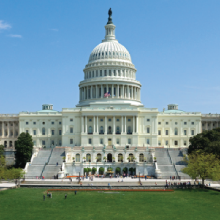Axitinib Survival Analysis Phase II Trial
This phase II trial poster, presented by Dr. Robert Motzer of Memorial Sloan-Kettering, focused on overall survival for patients taking axitinib. It followed an oral presentation of phase III AXIS trial data presented at this year’s ASCO Conference, and the results of the same Phase II trial, which were reported at ASCO 2010. All these trials showed axitinib—a second-generation selective VEGFR–to have efficacy superior to that of sorafenib (Nexavar) in second-line mRCC.
The trial of 52 cytokine-refractory mRCC patients, which employed three protocols over the treatment period, showed the following survival.
Thirty-five of the original 52 patients died of progressive disease, five died of unknown causes following axitinib discontinuation, 10 were alive and two were lost to follow up. The survival analysis also compared patient characteristics for those who survived longer than five years (10 patients) versus those surviving fewer than five years (40 patients).
These data imply that if a patient didn’t have an immediate response to axitinib, they would not have a long term survival (but not the converse). The longer someone is on therapy, the longer they survive; and the healthier the patient at the beginning of therapy, the longer the survival.
Post-hoc pharmacokinetic analyses suggest that longer median OS and PFS and high ORR correlate with cycle 1 day 1 post-dose concentrations of 45.2 ng/mL to 56.4 ng/mL, which interestingly was NOT the highest concentration quartile. Study authors suggest confirming these results in a prospective study.
The major grade 3/4 adverse events in this study were fatigue (21.2 percent), diarrhea (19.2 percent), and hypertension (15.4 percent). No new AEs emerged for long-term survivors.
The earlier presentations of this same Phase II trial reported the following results.
- Overall response rate (ORR) of 44 percent
- Progression-free survival (PFS) at 13.7 months
- Overall survival (OS) of 29.9 months
Primary investigator Robert Motzer listed follow up axitinib trials including the Asian AGILE, a phase-III which compares the compound to sorafinib in first line treatment of cytokine-failure, and a phase II randomized trial escalating by degrees of hypertension.





